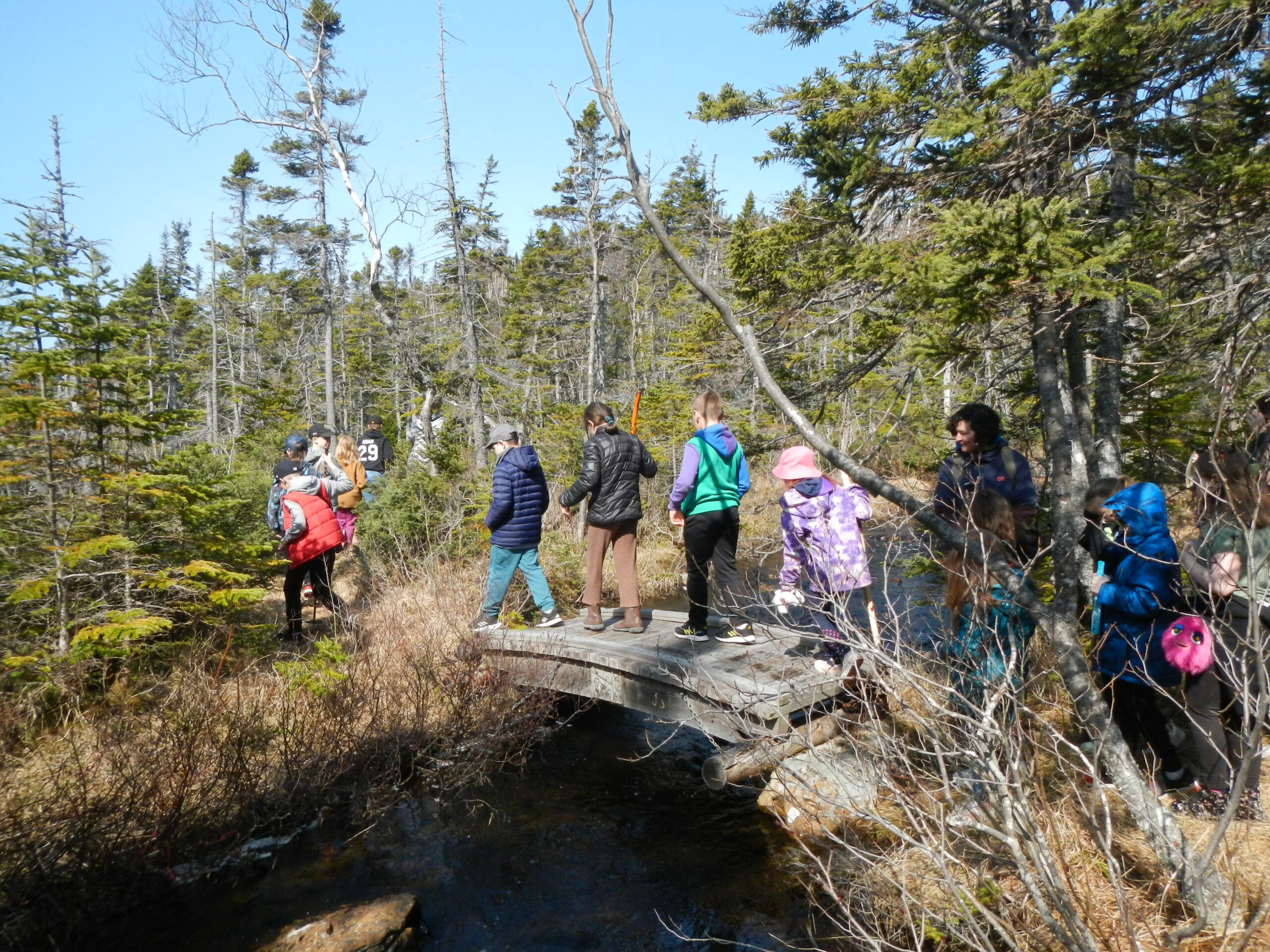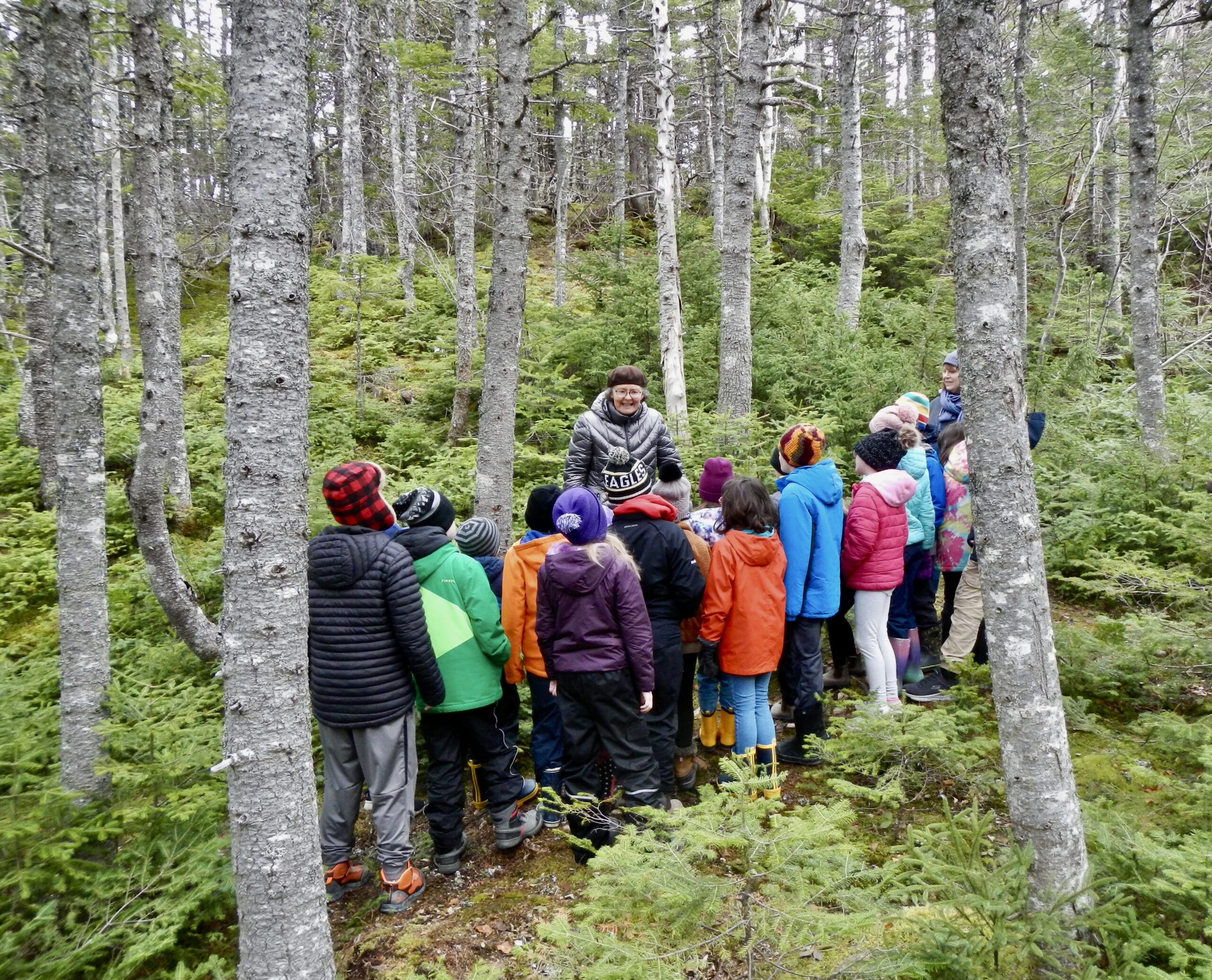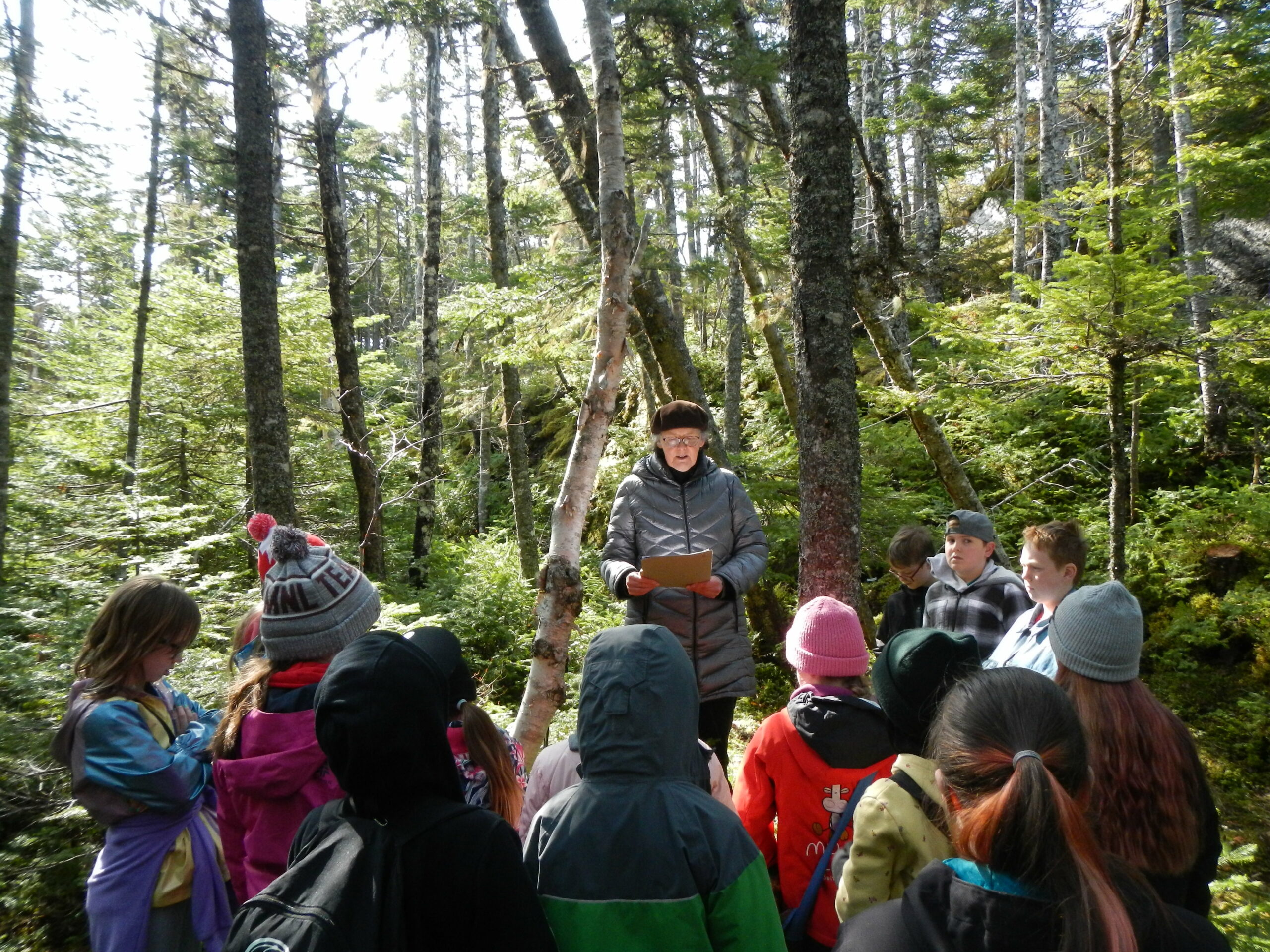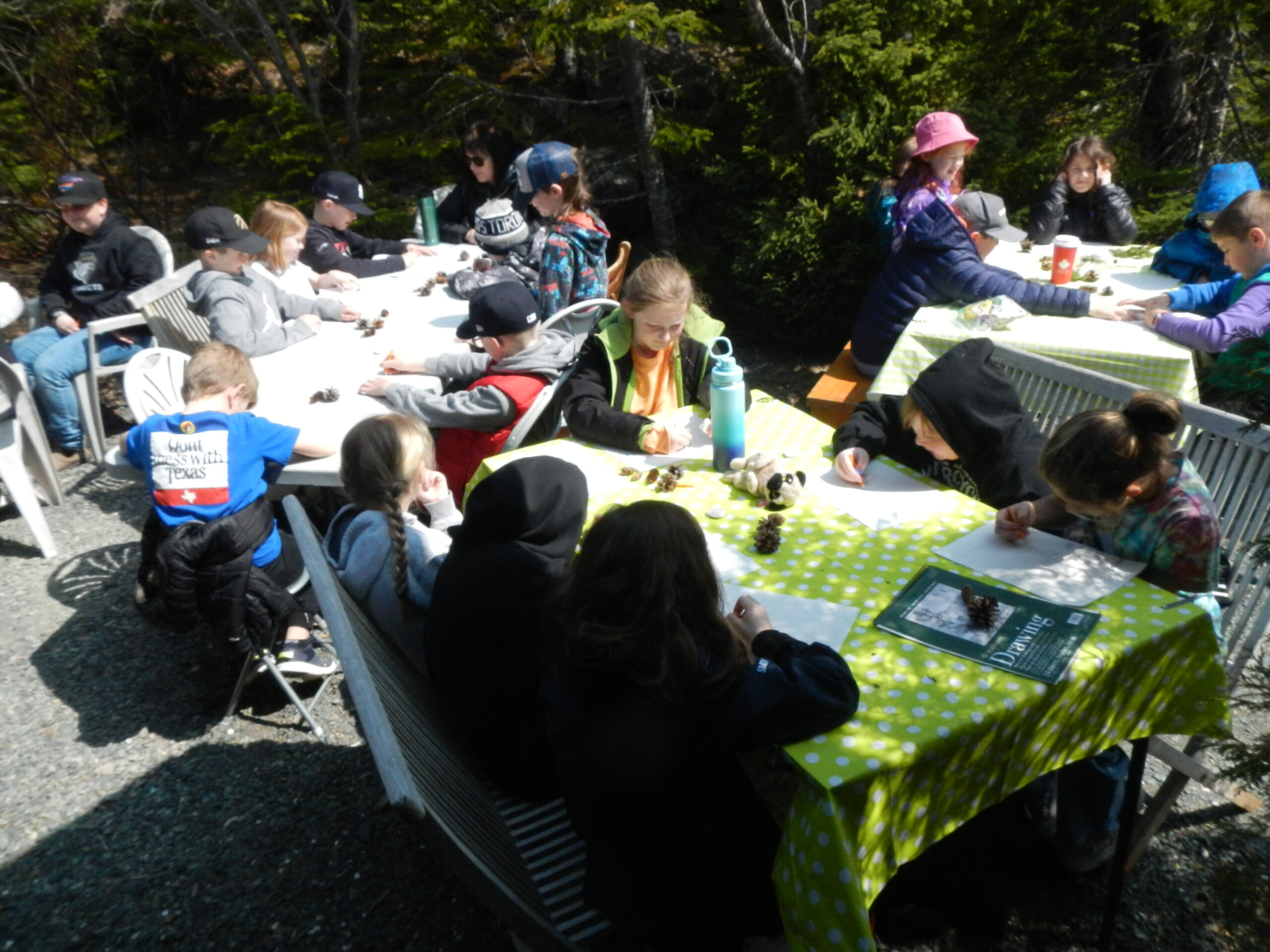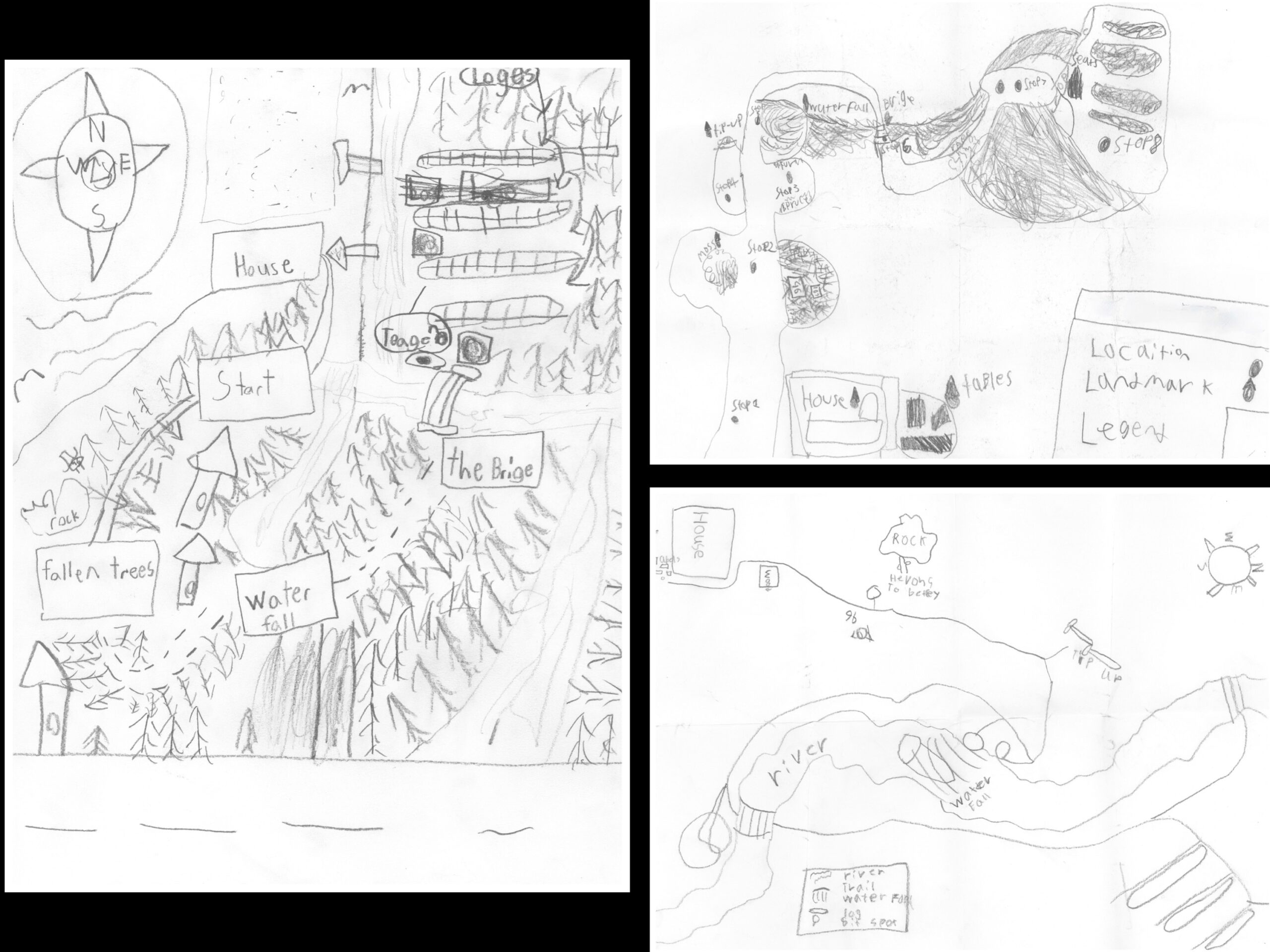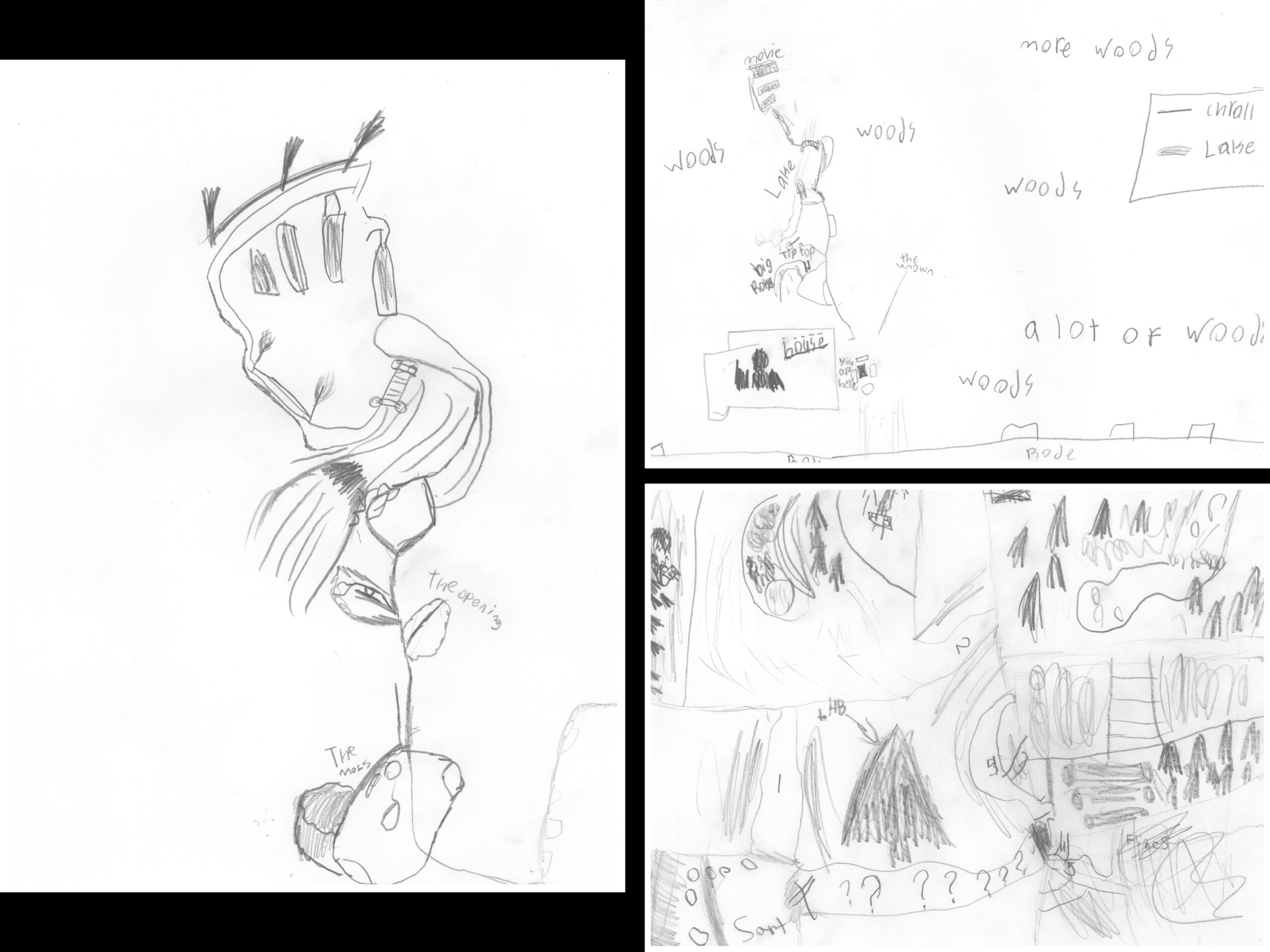Between 2005–2019, I held over 40 multidisciplinary public walks in The Boreal Poetry Garden — a six-acre (2.4 hectare) patch of old-growth boreal forest where I live in Portugal Cove, Newfoundland/ Ktaqmkuk, Canada. This patch of forest is traversed by the Blast Hole Pond River. This place has been the focus of my work as an environmental artist and poet for the past 21 years. Over 900 visitors attended these public walks.
In 2022, I started holding poetry walks for local elementary school children. I led them on the paths through the forest and we paused at certain points where I read them some of my site-specific poems. And we pause beside the Blast Hole Pond River for active listening. The Education Director from the Echo Pond Environmental Education Centre collaborated with me on these walks. She told the children about the boreal forest ecosystem and read them a nature story. About 100 children came in 2022–2023.
After the walk, when we’re back at the house, the children sit at tables and chairs set up in the driveway and I give them drawing paper and pencils to draw what I call a ‘memory map’ of their walk. Everyone’s map is very different, and the drawings illustrate what registers in their memories from the terrain, the poems I read them, and the natural history they have heard about the boreal forest ecosystem.
For the past 40 years, I have used memory maps in my own artwork and I have led dozens of memory mapping workshops with all ages. Recently I’ve read about the following benefit of memory mapping, especially for children:
Recent studies in cognitive science and psychology have found that “[T]he best way to raise a smart kid may be to nourish their ability to think spatially. […] Raw intelligence, it seems, is intertwined with our brain’s spatial cognition aptitude. […] This insight has come at a time when young people in general are experiencing less and less demand to exercise their spatial navigation skills. […] [T]he sedentary, habitual, and technology-dependent conditions of modern living are changing how children and even adults use their brains.”
—M.R. O’Connor, “Wayfinding: The Science and Mystery of How Humans Navigate the World,” St. Martin’s Press, NY, 2019.
The part of our brain called the hippocampus, which is involved in spatial learning, is being flexed much less in modern life, partly due to the use of GPS. A shrinking hippocampus can be related to stress, depression, insomnia, addictions, and dementia. “[U]sing a GPS navigation system to get to one’s destination essentially switches off distinct parts of the brain, including the hippocampus.” (Wayfinding, p. 271).
Bringing these various activities to children in The Boreal Poetry Garden is my way of encouraging their appreciation of the local boreal forest ecosystem, as well as providing an antidote to the dependence on technology. And, since learning the above, I’m also thinking about the health of their hippocampi.
“Memory maps are examples of alternative mapping, also called participatory mapping, counter mapping, de-mapping, re-mapping, and possibly even radical mapping. Every map tells a story and alternative maps tell alternative stories.”
—From my presentation “Site and Place: Walking, Memory Mapping, and The Boreal Poetry Garden” at the panel titled “The politics and poetics of walking ethnographies” at the 9th Ethnography and Qualitative Research Conference, University of Trento, Italy (via Zoom), June 9, 2023.
The children’s memory maps are about their subjective perceptions of this patch of old-growth boreal forest — perceptions they gained by their 3-dimensional, embodied, and situated experiences on the ground. I believe it’s crucially important for children to learn about our environment through multi-sensorial experiences on the tangible land, as opposed to the increasing amount of time they spend looking at screens — both in and out of school.
Here are some comments written in my guest book by school children who came for a walk in The Boreal Poetry Garden in May 2023:
• “I loved the waterfall. It was so calming and nice.”
• “My curiosity about the woods was off the charts as soon as I got in. Thank you for letting our class visit your house and go through the boreal forest.”
• “I think this was so much fun. I hope I can come here again next year if I can. I learnt so many things too. This was the best day ever here.”
• “I loved the walk and all the lovely poems. It was very nice to hear the story! I would love to do it again!”
• “I love exploring nature with you. It was very fun!!!”
• “I love all of the trees. I loved today. I had so much fun.”
• “My favourite part was the waterfall and the poems.”
• “I like nature and rarely hear such a great sounding river. Along with the poems, it was the best!”
• “A centipede was near the water. I think the amphitheatre was cool. Marlene said little trout live in the water, but I did not see any fish.”
• “My favourite part of this trip was probably looking at the waterfall and making maps.”
• “I love the sound of the water.”
• “My favourite part of the day was making the maps because I got to draw them and I love to draw.”
• “My favourite part of this field trip was learning about trees.”
These walks for children will continue in the spring and fall of 2024 with the addition of a singer-songwriter who will sing songs she wrote about water, which she will sing beside the Blast Hole Pond River; a clarinet player who will also play a moose horn (the moose horn is a single reed instrument and tunes can be played on it); a puppeteer with a portable shadow puppet theatre with puppets of local mammals in the boreal forest; an accordion player and percussionist who will lead an improvised drumming session with the children on the footbridge over the river; and a contemporary dancer who will choreograph and perform site-specific dance in response to the terrain and the river.


